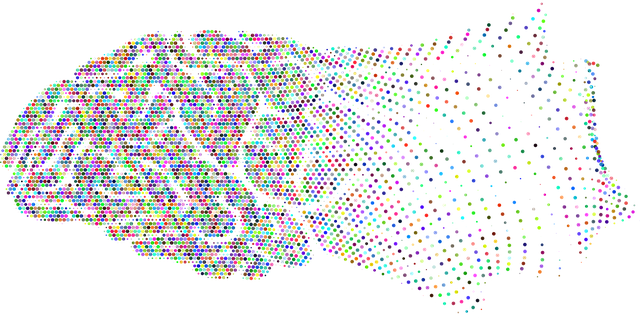Self-care is essential for managing Parker Functional Neurological Disorder (PFND), focusing on mental and physical health. PFND therapy combines routines, stress reduction, and communication strategies through mindfulness and goal-setting to improve symptoms and quality of life. Healthcare providers should undergo cultural competency training to offer personalized care. By prioritizing self-care, individuals with PFND can achieve better outcomes and an improved overall lifestyle. This involves structured routines, professional guidance, and tailored strategies to overcome barriers, emphasizing the importance of personalized, holistic self-care for long-term well-being.
Self-care is a powerful tool for managing neurological disorders, with significant impacts on overall well-being. This article explores effective strategies to enhance self-care practices, focusing on the unique benefits of Parker Functional Neurological Disorder Therapy. We’ll delve into how this holistic approach can transform lives, offering practical tips for incorporating routines tailored to individual needs. Additionally, we’ll discuss common barriers and provide insights to sustain long-term mental and physical health.
- Understanding Self-Care and its Impact on Neurological Disorders
- Parker Functional Neurological Disorder Therapy: A Holistic Approach
- Strategies for Incorporating Effective Self-Care Routines
- Overcoming Barriers and Sustaining Long-Term Well-being
Understanding Self-Care and its Impact on Neurological Disorders

Self-care is an essential aspect of maintaining overall well-being, especially for individuals living with neurological disorders. It involves a range of activities and practices designed to nurture both mental and physical health. When tailored specifically for conditions like Parker Functional Neurological Disorder (PFND), self-care becomes a powerful tool for managing symptoms and enhancing quality of life. PFND therapy often emphasizes the importance of daily routines, stress management, and communication strategies to improve overall functioning.
By incorporating effective self-care practices, individuals with PFND can experience significant improvements in their ability to cope with challenges. This may include confidence-boosting techniques, such as setting achievable goals and practicing mindfulness, which have been shown to positively impact neurological symptoms. Furthermore, healthcare provider cultural competency training plays a crucial role, ensuring that patients receive tailored care that respects their unique needs and backgrounds. Ultimately, understanding and prioritizing self-care can lead to better outcomes and a more fulfilling life for those navigating the complexities of PFND and similar disorders.
Parker Functional Neurological Disorder Therapy: A Holistic Approach

Parker Functional Neurological Disorder Therapy offers a comprehensive and holistic approach to self-care, focusing on the intricate connection between the mind and body. This therapy recognizes that emotional and physical well-being are interconnected, and by addressing neurological dysfunctions, it aims to bring about significant improvements in a person’s overall health and happiness. The treatment involves a multi-faceted strategy tailored to each individual’s unique needs.
By employing techniques such as positive thinking reinforcement and resilience-building exercises, this therapy empowers individuals to take control of their mental and physical states. Additionally, communication strategies are integral to the process, enabling better expression of emotions and fostering healthier relationships. Through these holistic methods, Parker Functional Neurological Disorder Therapy provides a transformative journey towards enhanced self-care and personal growth.
Strategies for Incorporating Effective Self-Care Routines

Incorporating effective self-care routines is a powerful strategy to enhance overall well-being, especially for individuals navigating challenges like Parker Functional Neurological Disorder (PFND). Self-care isn’t just about pampering; it’s a necessary practice for maintaining and improving mental health. A structured approach can make this process more manageable. Start by identifying your unique needs and setting realistic goals. For instance, establishing a consistent sleep schedule, engaging in regular physical activity, and incorporating mindfulness practices such as meditation or deep breathing exercises can significantly contribute to self-care routine development for better mental health.
Consider seeking guidance from professionals like those offering trauma support services or conducting risk assessments for mental health professionals. They can provide tailored strategies and tools to manage symptoms associated with PFND or other similar conditions. By integrating these practices into your daily life, you create a robust foundation for resilience and emotional balance. Remember, self-care is not one-size-fits-all; it’s about discovering what works best for you, fostering self-compassion, and prioritizing your mental health journey.
Overcoming Barriers and Sustaining Long-Term Well-being

Overcoming barriers to self-care is a significant step towards sustaining long-term well-being. Many individuals face challenges that hinder their ability to prioritize self-nurturing activities, such as stress from demanding jobs or caregiving responsibilities. Even conditions like Parker Functional Neurological Disorder (PFND) can create unique obstacles to maintaining a consistent self-care routine. However, with strategies tailored to individual needs, these barriers can be overcome. For instance, PFND symptoms might necessitate adapted practices like modified mindfulness meditation techniques suitable for cognitive and physical limitations.
Self-esteem improvement and emotional healing processes play crucial roles in this journey. Engaging in regular activities that promote relaxation and stress reduction, such as Mindfulness Meditation, can enhance one’s ability to manage emotions effectively. Over time, these practices contribute to a deeper sense of calm and resilience, making it easier to navigate life’s challenges without sacrificing self-care. By addressing underlying emotional issues and building confidence through Self-Esteem Improvement techniques, individuals become better equipped to make their well-being a priority, ensuring they can sustain healthier habits in the long term.
Incorporating self-care practices, such as Parker Functional Neurological Disorder Therapy, can significantly impact managing neurological disorders. By adopting a holistic approach and implementing effective routines, individuals can improve their overall well-being and quality of life. Overcoming barriers to self-care is essential for long-term sustainability, allowing folks to navigate their conditions with enhanced resilience and a profound sense of balance.














